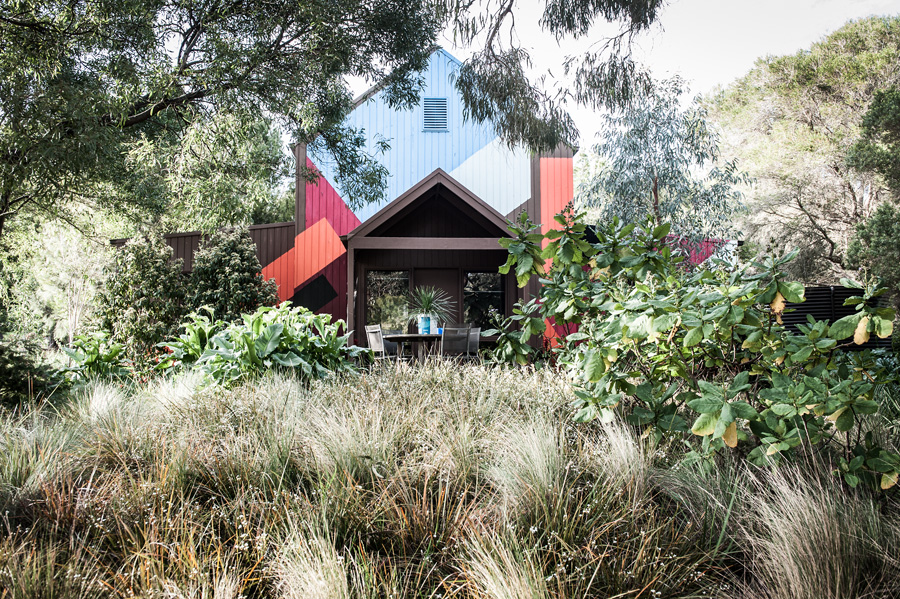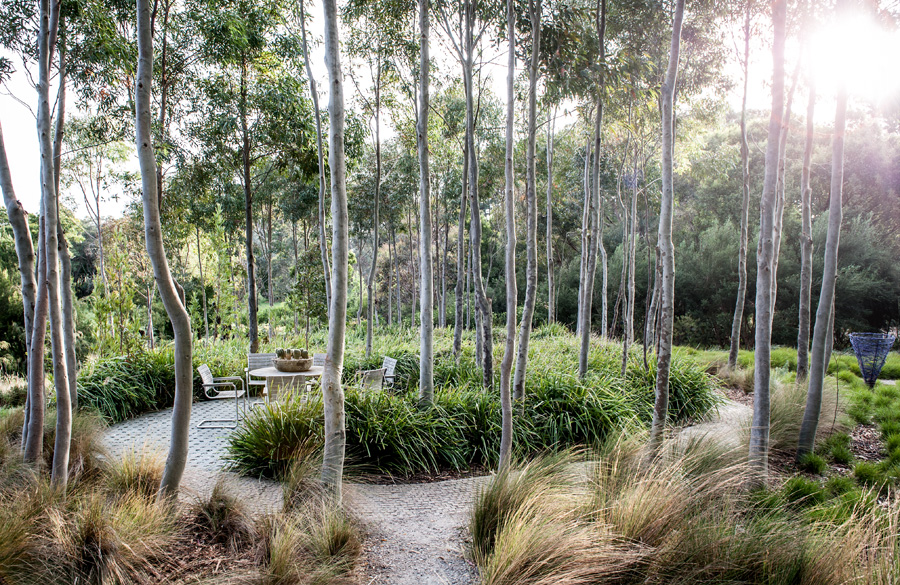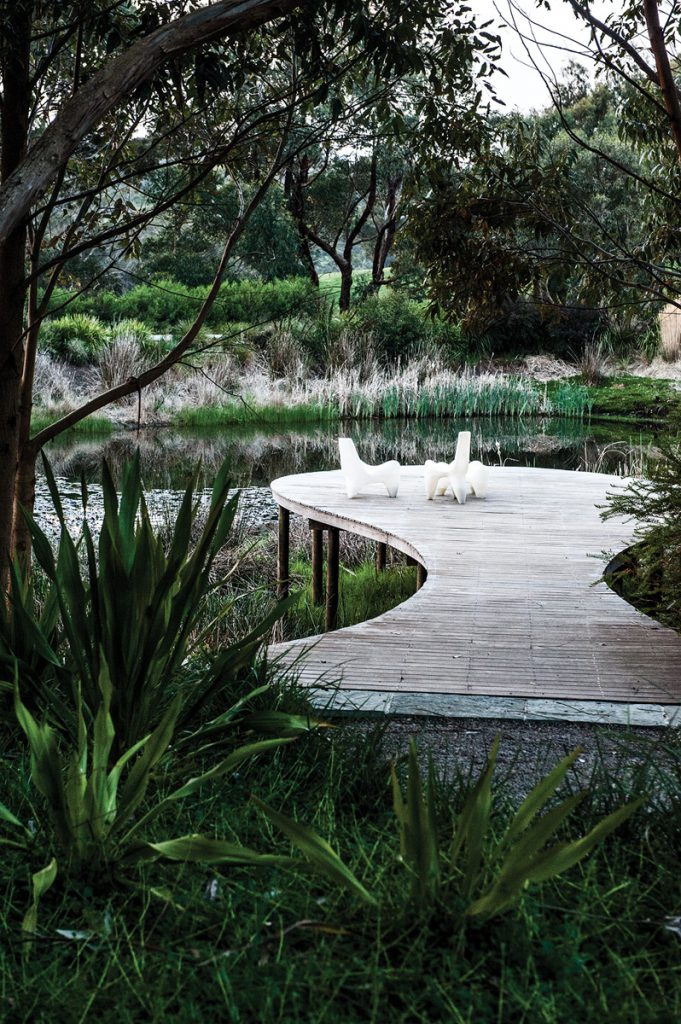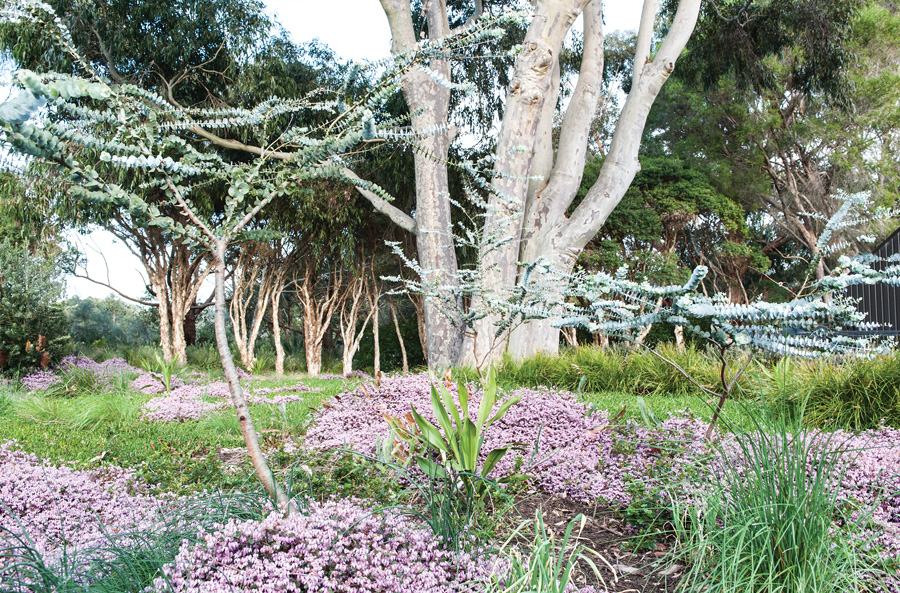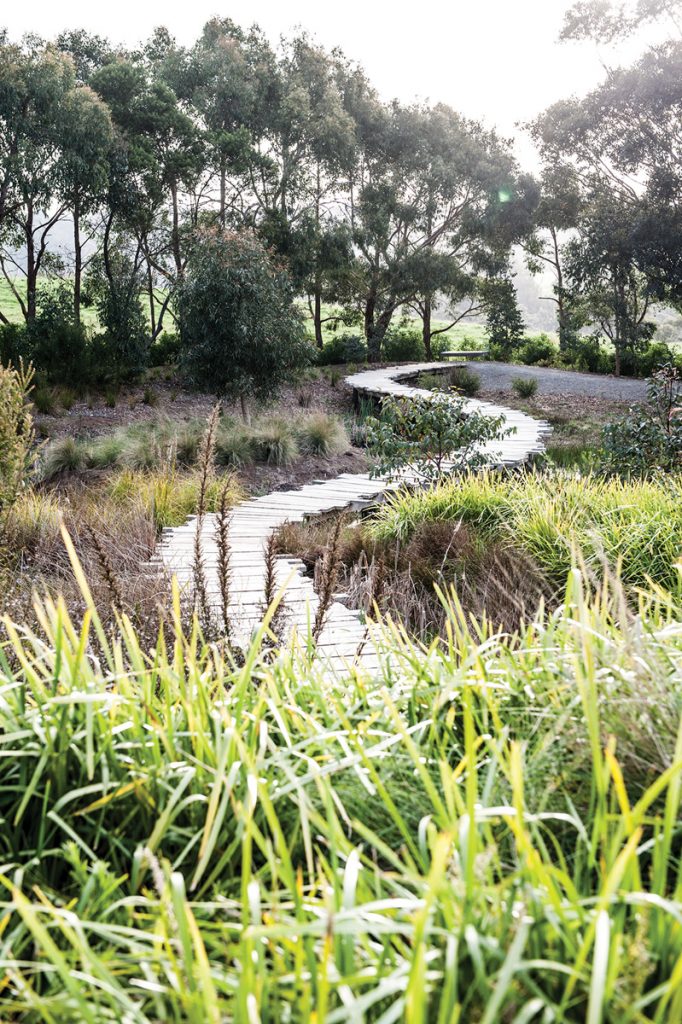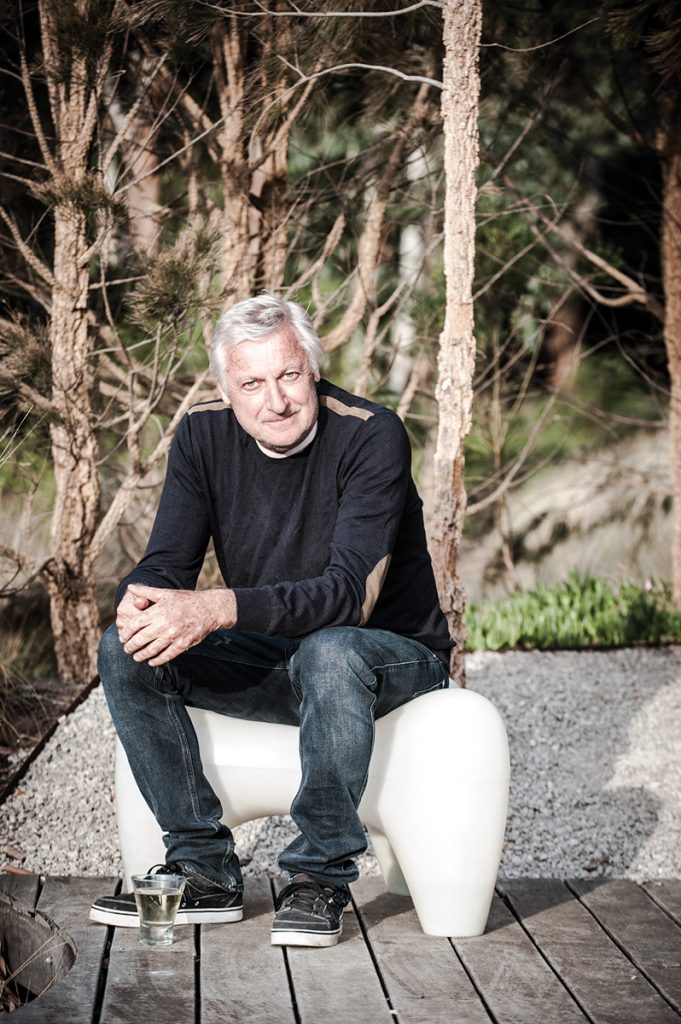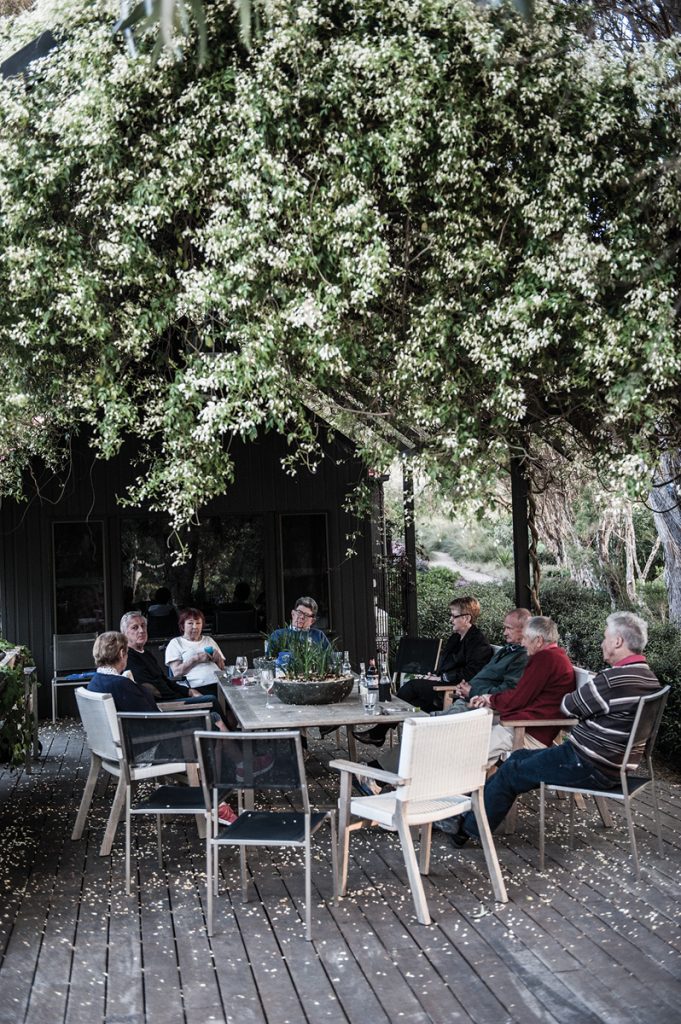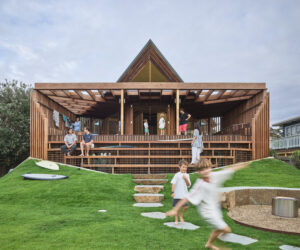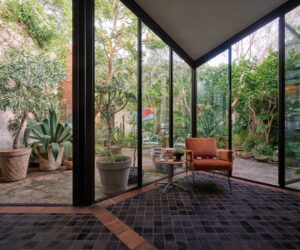Open Slather
After decades of designing to clients’ tastes, Rick Eckersley and his business partner Myles Broad have embraced the glorious luxury of impromptu experimentation and
light-hearted fun at their 10-hectare work-in-progress on the Mornington Peninsula.
Truly creative souls are utterly unfazed by failure. If anything, they’re excited by the prospect of occasionally falling flat on their faces. They understand precisely how important experimentation is to original thinking, how mistakes are inevitable in any trial and error process, and how much can be learned by starting afresh with new ideas. So it is with the creators of Musk Cottage, the rambling, folly-filled, endlessly inventive experiment in large-scale Australian gardening at Rick Eckersley’s home in Flinders on Victoria’s Mornington Peninsula.
Rick is recovering from illness when green visits so Myles Broad, his Principal Designer at Eckersley Garden Architecture, does the honours. He’s still entertained by their decade-long labour of love, which has transformed a “tizzy” English-style country garden – think David Austin roses, pussy willow and clipped balls and cones: the full catastrophe – into a freewheeling landscape of native vegetation and humorous contemporary sculpture interwoven with some striking exotics. “It has been completely ad hoc – in a good way,” he says with a laugh.
Having grown up on big gardens in Victoria’s Western Districts, Rick was undaunted by the scale of the transformation required when he bought Musk Cottage. Instead, he was won over by the established trees, “lovely topography” and simple dwellings naturally sheltered at roughly the centre of the steeply sloping block. Amongst the manifold highlights were a large dam, an avenue of 80- to 90-year-old blackwood wattles lining an old coach route, and a design that segmented the site into interesting axes and discreet “paddocks” or garden rooms ripe for renovation.
Working weekends with no final deadline and the freedom to design on the fly, the pair and various ring-ins began at the rear of the house, adding an expansive 250-square-metre timber deck overlooking the dam and shaded by a monumental linden tree. Next came “the big, really messy stuff”, including excavation works for a naturally filtered pool and the removal of numerous unloved species. Some, like the aforementioned clipped balls and cones, were trimmed into penises and left to die. Slowly.
An undulating landscape, towering trees and winding paths hide all manner of additions, making a walk around Musk Cottage an amusing, leisurely, frequently breathtaking, grand revelation. There’s a cloud pruned hilltop hedge maze with a symmetrical grid of 100 ironbarks designed to accommodate five (as yet unmade) large-scale sculptures; familiar exotics at home among iridescent natives and cascading vines; a fire pit enclosed by a low wall of empty “stubbies” (consumed in the line of duty); snaking, roughhewn timber boardwalks; swales to guide rainfall towards the dam; even a lush wetland (currently bone dry) that captures occasional dam run-off. Irrigation is by rainfall alone and, despite the garden’s wildly extravagant proportions, Myles describes it as low maintenance.
Whim and whimsy abound. There’s a rarely used driving range, a bocce rink and hidden tennis court; a swirling avenue of hillhugging trees inspired by Leunig’s Mr Curly; enormous sculptures by local artists – including some tongue-in-cheek erotic works by Myles; and an in-built trampoline so well concealed by reeds it looks as if jumpers are bouncing on dam water. Showy, nectar-laden Western Australians like banksias, kangaroo paw and grevilleas planted at the height of the drought couldn’t adapt to cooler, wetter conditions and are long gone. Ditto the noisy, energy-guzzling pump that led to a rethink of the pool’s natural filtration system. A windmill too short to catch the wind stands stock still by the dam like a sculpture of sorts. No matter.
Given the open-ended brief, ongoing challenges of everything from climate change to the kangaroos determined to eat every living thing except the kangaroo grass intended for them, and the sustained enjoyment of those involved, it’s clear the Musk Cottage experiment could continue indefinitely.
“I think the big money’s been spent,” Myles says. “From here it’s about that natural garden evolution. Areas will change, or areas will die out. We’re looking at playing with the lawns, maybe not mowing any of the lawns bar for some patterns and shapes. Sewing it with wildflowers … that sort of thing”.
Why the hell not?
